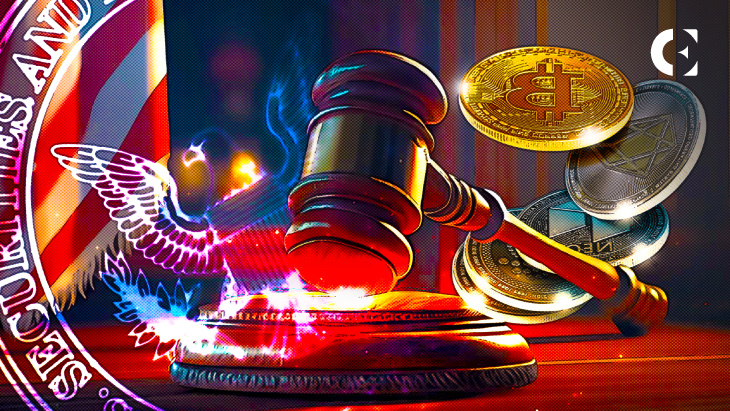- Paul Grewal criticized the recent SEC-Binance court hearing after reviewing its transcript.
- The lawyer questioned the regulator’s misrepresentation of Rule 8.
- The SEC requested the court to reserve its rights and dismiss the motion without affecting the commission.
Paul Grewal, an American attorney, and Chief Legal Officer at the SEC-sued crypto exchange Coinbase, criticized the SEC-Binance court hearing, after a detailed review of its transcript. In his recent tweet, Grewal cast doubt on the Securities and Exchange Commission (SEC) right to “reserve” and to “get past” the motion under the court’s Rule 8.
Subsequent to the SEC’s series of accusations on the prominent crypto platform Binance, the regulators requested the US Federal Court to freeze the assets of the exchange as a move to ensure customer protection. However, in the recent court hearing mentioned by Grewal, the court proposed a compromise between the agency and the exchange, allowing Binance to continue its operations.
On June 26, the Coinbase attorney shared a Twitter thread, questioning the regulator’s intent while introducing a faulty statement regarding Rule 8:
During the hearing, while the court asked for clarifications on the deemed securities, and the securities traded by Binance, the SEC’s response was inaccurate. In addition, the agents could not produce any evidence to prove their claims regarding the misuse of customer funds.
As per the court hearing transcript, the commission claimed that the SEC is at its “pleading stage” to reserve rights and requested to dismiss the potential motion without any effects on the agency. The statement read:
We — at this time, Your Honor, we’re reserving our rights, just given we’re at the pleading stage we have to get into discovery where we can make a full assessment. But our position, Your Honor, is that if one of these coins are a security, we’ve won.
Grewal shared the conversation between Judge Amy Berman Jackson, and the SEC counsel, highlighting the SEC’s misconstruction of Rule 8. The lawyer asked, “Since when does Rule 8 (or 11) allow any party, let alone the government, to “reserve” identifying what exactly it claims to “get past” a motion to dismiss and into discovery?”.
Disclaimer: The information presented in this article is for informational and educational purposes only. The article does not constitute financial advice or advice of any kind. Coin Edition is not responsible for any losses incurred as a result of the utilization of content, products, or services mentioned. Readers are advised to exercise caution before taking any action related to the company.







